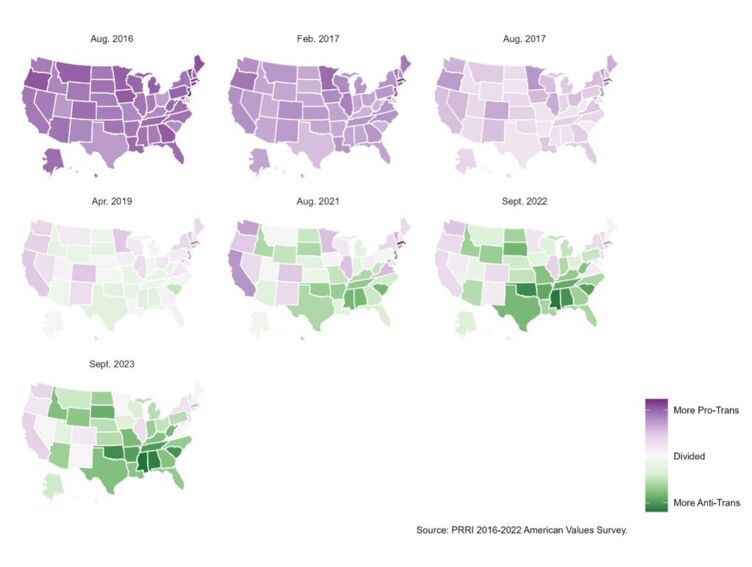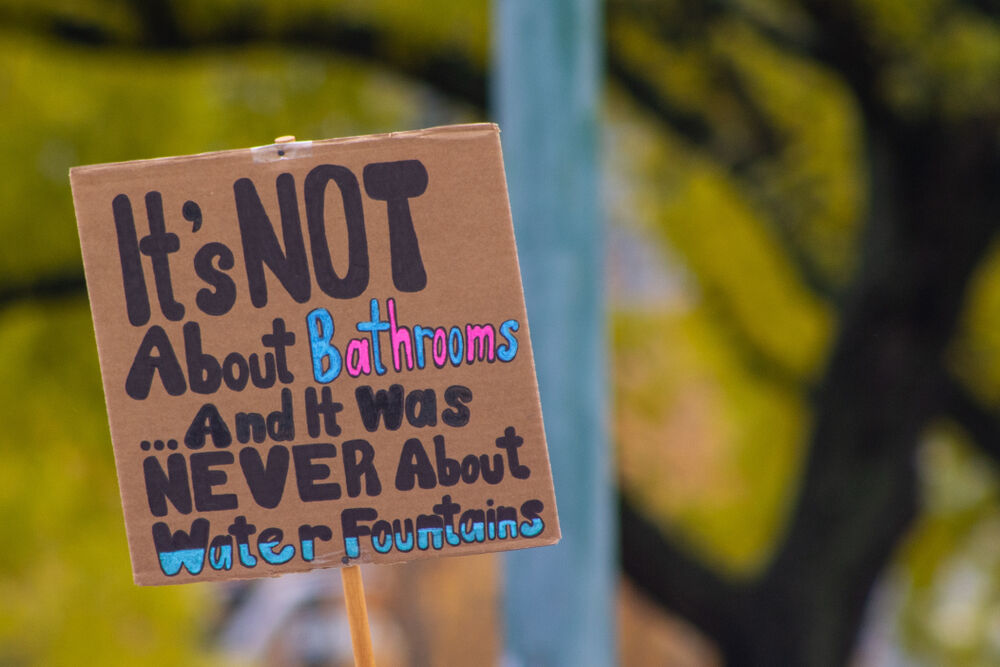Many states have either become more evenly divided on transgender issues or more supportive of anti-trans legislation, particularly if those states introduced legislation restricting access to bathrooms and gender-affirming care for trans minors, a new poll from the Public Religion Research Institute (PRRI) has found.
Even more concerning, the poll found that there has been a decline in support for LGBTQ+ rights overall, including a drop in support for marriage equality. If these trends continue, they could result in a deepening national political divide, essentially creating “two Americas” for LGBTQ+ people, according to PRRI analyst Andrew R. Flores.
Related:
Here are all the anti-trans bills that have become law in 2023
Republican lawmakers have worked round the clock to pass oppressive bills targeting gender-affirming care, bathroom usage, drag shows, and trans students.
“In 2016, there were more adults opposing restrictive bathroom policies than favoring them,” Flores wrote. “This has gradually changed over time, with some common red states, particularly in the South and portions of the Midwest, becoming more divided and then more favorable of these policies.” He also wrote that survey respondents are decreasingly likely to respond “I don’t know” when asked about their stance on trans-related bathroom policies.
Insights for the LGBTQ+ community
Subscribe to our briefing for insights into how politics impacts the LGBTQ+ community and more.
While polling has shown broad support for same-sex marriage and anti-discrimination measures overall, Flores said, support for the former dropped from 72% in 2021 to 66% in 2023 — a 6% drop.
States with lawmakers who introduced anti-trans legislation were more likely to have citizens who support transphobic legislation, Flores added. However, he also wrote that anti-trans attitudes in these states began rising in 2021, before the massive increase in anti-trans legislation and political rhetoric nationwide.

Flores reached his conclusion by analyzing responses to the 2023 American Values Survey (AVS), an annual survey conducted by PRRI and the Brookings Institution, a self-described non-partisan social sciences think tank.
While younger people tend to support LGBTQ+ civil rights, Flores said that political partisanship — that is, whether one identifies as Democratic or Republican — can still influence a person’s view of trans issues, regardless of age.
“Social change is not a one-way ratchet toward greater acceptance of LGBTQ+ people,” Flores wrote. “While younger generations are indeed more accepting than older generations… partisanship can overcome generational divides on attitudes about transgender rights.”
“There is geographically a cluster of states that is more anti-trans and another cluster of states that is more pro-trans, with few states in between,” Flores noted. As a result, “there may be an emergent two Americas for LGBTQ people [and] particularly for transgender people,” he said.
“Just as the undermining of democratic norms by political elites can shift some in the masses to devalue democratic norms, the anti-LGBTQ turn may be shifting the opinion landscape about LGBTQ people and rights,” he wrote.
Flores noted that this trend isn’t accidental. In fact, anti-LGBTQ groups are deliberately “steering” the LGBTQ+ policy agenda “by strategically focusing on certain controversial issues,” he noted. To regain control of the narrative, he said LGBTQ+ people and allies will have to focus on changing public opinion and mobilizing voters to “forestall future surges in anti-LGBTQ bills.”
Don't forget to share:














